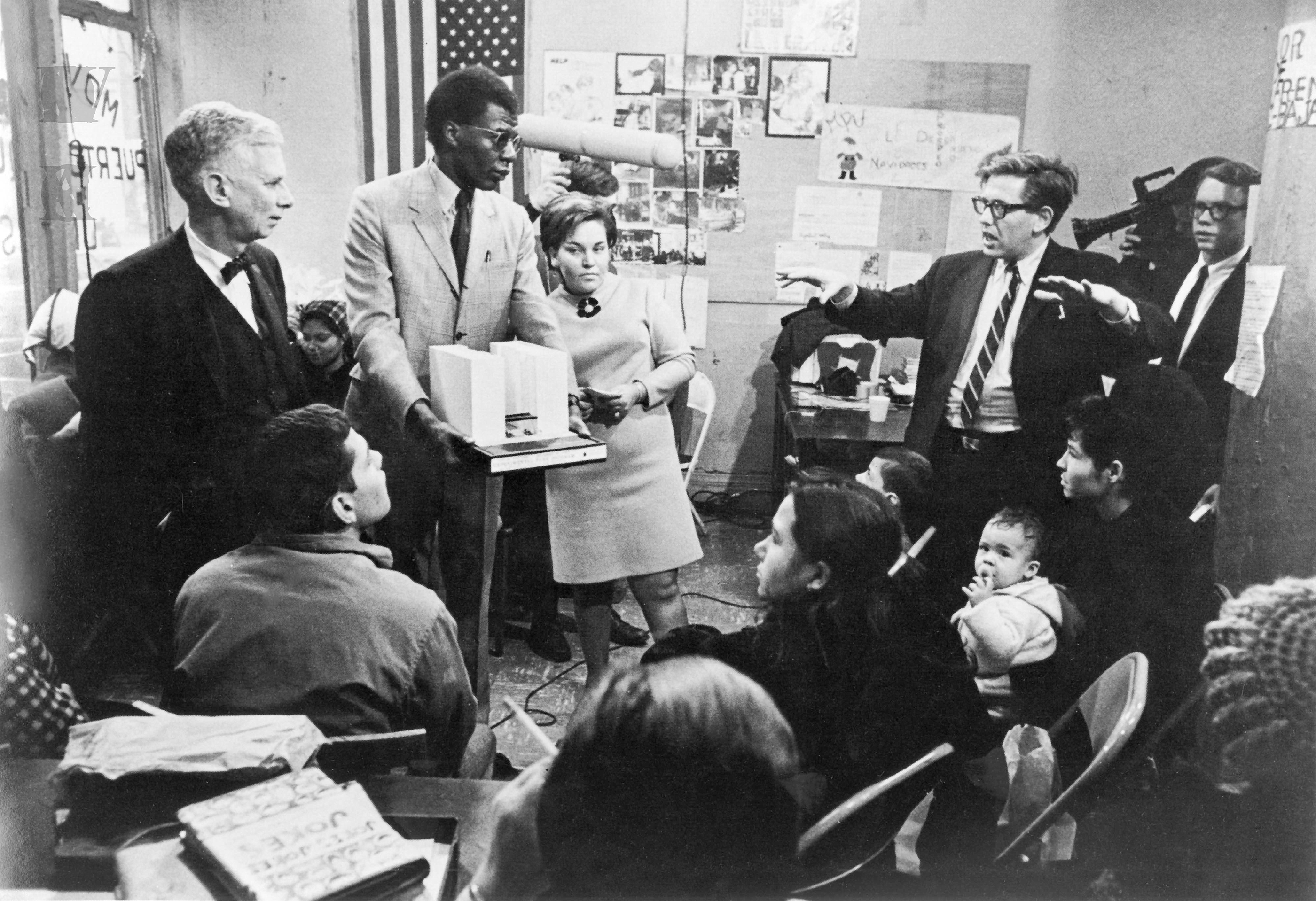
The Invention of Public Space: Designing for Inclusion in Lindsay’s New York
University of Minnesota Press | 2020As suburbanization, racial conflict, and the consequences of urban renewal threatened New York City with “urban crisis,” the administration of Mayor John V. Lindsay (1966–1973) experimented with a broad array of projects in open spaces to affirm the value of city life. Mariana Mogilevich provides a fascinating history of a watershed moment when designers, government administrators, and residents sought to remake the city in the image of a diverse, free, and democratic society.
New pedestrian malls, residential plazas, playgrounds in vacant lots, and parks on postindustrial waterfronts promised everyday spaces for play, social interaction, and participation in the life of the city. Whereas designers had long created urban spaces for a broad amorphous public, Mogilevich demonstrates how political pressures and the influence of the psychological sciences led them to a new conception of public space that included diverse publics and encouraged individual flourishing. Drawing on extensive archival research, site work, interviews, and the analysis of film and photographs, The Invention of Public Space considers familiar figures, such as William H. Whyte and Jane Jacobs, in a new light and foregrounds the important work of landscape architects Paul Friedberg and Lawrence Halprin and the architects of New York City’s Urban Design Group.
The Invention of Public Space brings together psychology, politics, and design to uncover a critical moment of transformation in our understanding of city life and reveals the emergence of a concept of public space that remains today a powerful, if unrealized, aspiration.
“Deeply researched and wonderfully written, The Invention of Public Space will inspire a re-thinking of a concept—public space—and a place and time—New York City in the 1960s and ’70s—that we thought we knew well. Mariana Mogilevich captures the unique excitement of that moment when the top-down framework of modernist urban design and planning had collapsed and a new world of open, inclusive, and participatory design seemed to be beginning.”
Robert Fishman, Taubman College of Architecture + Planning, University of Michigan
“Mariana Mogilevich avoids the expected judgements about the spaces she surveys—how ‘public’ were they, really?—and shows how the idea of ‘public space,’ with all its paradoxes and exclusions, was itself devised as a response to urban crisis in 1960s New York City. Pithy, clever, and wise, The Invention of Public Space is a much-needed reminder that ideas about self and society are at the heart of the cultural history of urbanism.”
Samuel Zipp, coeditor of Vital Little Plans: The Short Works of Jane Jacobs
“In The Invention of Public Space, Mogilevich focuses on what was indeed a rich period of change in the ways professionals and public figures alike sought to improve the urban setting, through both innovative designs and new processes such as participatory planning. In contrast to the physical legacy of Robert Moses a generation earlier, much of what Lindsay fostered proved to be ephemeral, but Mogilevich argues that much can be learned from his endeavors. Thanks to the author's original research and acute analysis, this an important book, not just for the history of 20th-century New York but also for the history of urban America more broadly.”
Richard Longstreth, CHOICE
2021 John Brinkerhoff Jackson Book Prize, The Foundation for Landscape Studies
ASLA Best Books of 2020, Planetizen Best Books of 2021
Reviews in Architect’s Newspaper, ARLIS/NA, The Baffler, Buildings & Landscapes, Journal of Planning History, Journal of Urban Design, Landscape Journal, New York Review of Architecture, Planning Perspectives
Read Q&As on Metropolis ︎︎︎ and Gotham Center Blog ︎︎︎
Read an excerpt on History Workshop ︎︎︎
Purchase from the publisher︎︎︎
Environment, Public Space, Writing
︎︎︎ ︎︎︎